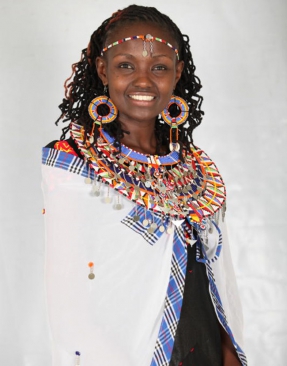
She came to the limelight because of her Samburu Girls Foundation. Even Obama acknowledged her work that involves rescuing girls from forced marriages and genital mutilation. Josephine Kulea spoke to CATE MUKEI about her challenges and awards
How did you feel when Obama acknowledged your work at the Global Entrepreneurship Summit?
I was shocked! I did not hear the rest of it. I became numb and by the time I had recovered, he was saying asanteni sana. My phone started ringing and I was flooded with congratulatory texts. It was such a humbling experience.
Did you get an invite?
Yes, though I had not planned to attend the summit. I received a call from White House and they insisted that I must attend. I picked my accreditation from the Embassy because it was a VIP pass. I didn’t expect President Obama to know my name. I first met him in 2014 at the Yali (Young African Leaders Initiative) Fellows meeting.
You are a crusader against FGM and early marriages. How did it all start?
It started in my village in Oldonyiro, Samburu. I schooled there until class four. Most of my classmates dropped out of school and got married. I remember this priest who volunteered to enroll my friend to a boarding school in Meru to save her from marriage. Later, I also enrolled at the school.
Did your parents attempt to marry you off? My father died when I was very young. My mother wanted us to go to school, but the uncles felt that I was old enough to get married and kept saying that whenever I came home for the holidays. My mother would not have any of it since she valued education. She was married off as a third wife while in form two and did not want the same fate to befall us.
How did you start your foundation? My experience as a student in Meru was the beginning. I realised that women from my community were being discriminated on. One of my cousins was herding cattle instead of going to school. I began teaching her and urged her parents to allow her join school. She went to nursery school when she was 10 years old. She topped her class and ultimately she did graduate from Moi University and became a doctor. She was even named among the top 100 students in the country in KCSE (Kenya Certificate of Secondary Education).
How was your first rescue mission? My 10-year-old cousin whom I lived with was being married off. I later discovered that my relatives had tried to marry off her seven-year-old sister as well. I got the information just before the wedding and decided to report the matter to police and got cops to stop them. I found armed morans at the homestead and my uncles were arrested. After that incident, the whole community turned against me.
How did the community treat you? Apart from my mother and siblings, everyone avoided me. A ceremony was even organised to curse me. The elders got together in 2008 and wished me death, which many believed would come to pass within a short time.
What other challenges did you face? I did not have donors and so I ended up paying some of the girls’ school fees from my salary. I also did not have the support of the county government, since the leaders have a political agenda and did not want to be seen to be antagonising their voters. In fact, one such leader is a former close friend, who unfortunately has ganged up with some uninformed politician and are now fighting my foundation. She even lied that she owns my foundation in an interview with Forbes. There is also the lack of support from local police, who often tell me that they don’t have fuel to drive to where girls are being circumcised whenever I report such cases.
What was the biggest breakthrough for your foundation? I was first interviewed by the local media before CNN picked the story. They were so impressed that they even followed me to one of my rescue missions. After that, I got a Head of State Commendation in 2012 from former President Mwai Kibaki. In 2013, I was named the United Nations Person of the Year, while in 2014, I was honoured with the Inspirational Woman of the Year award by the National Gender and Equality Commission.
 The Standard Group Plc is a multi-media organization with investments in media
platforms spanning newspaper print
operations, television, radio broadcasting, digital and online services. The
Standard Group is recognized as a
leading multi-media house in Kenya with a key influence in matters of national and
international interest.
The Standard Group Plc is a multi-media organization with investments in media
platforms spanning newspaper print
operations, television, radio broadcasting, digital and online services. The
Standard Group is recognized as a
leading multi-media house in Kenya with a key influence in matters of national and
international interest.









